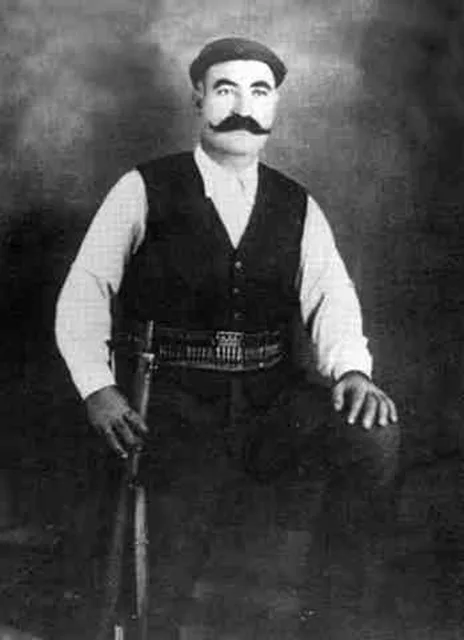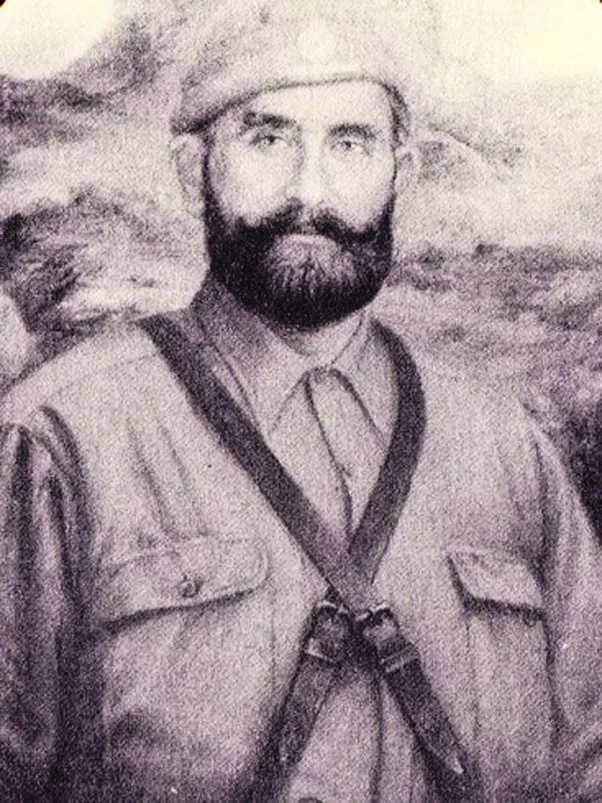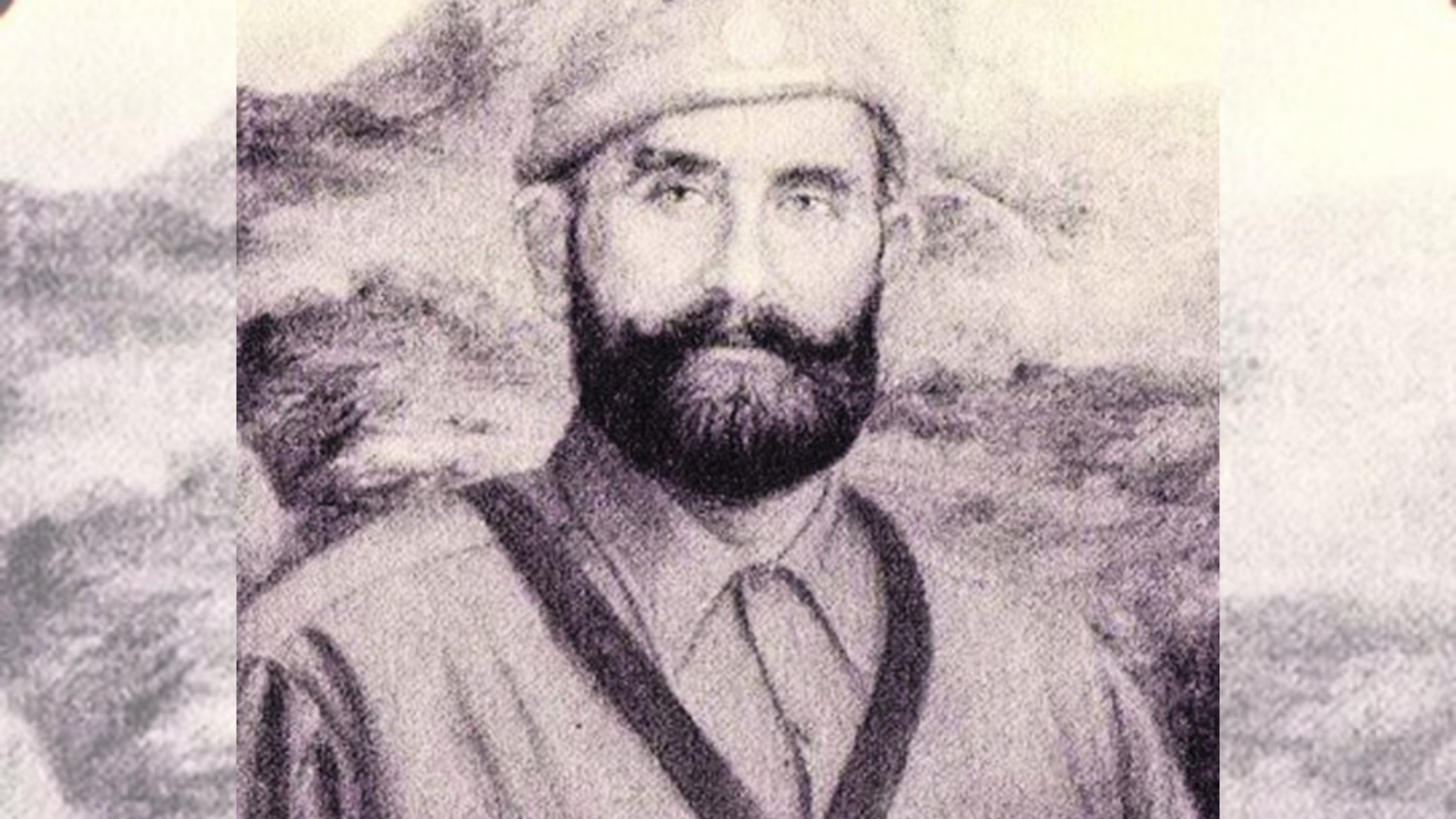By Zac Kapellakis
The Battle of Crete was the operation for the capture of Crete by the Germans during World War II. On the morning of May 20, 1941, the German airborne invasion began under the code name “Operation Mercury” and lasted until June 1, 1941. The capture of Crete cost the Germans so much that they never attempted another airborne assault (of the same scale) during the war. For me, however, it holds a special honour.
Given the opportunity I have today, I would like to express what the Battle of Crete means to me and to honour two particular individuals, two guerilla leader whom I have the special honour of referring to as my great-grandfathers, two of the leading captains of Crete in the resistance struggles against the Nazis. Their names have been indelibly written in the history of our land. I am referring to the heroes of 1941, Captain Emmanouil Bantouvas, also known as Bantouvomanolis, and especially to the Eagle of Crete, Captain Georgios Petrakis or Petrakoyiorgis, two leaders and heroes of the national resistance of Crete during World War II.
Captain Manolis G. Bantouvas was born in 1897 in Ano Asites, Malevizi. In October 1940, when Mussolini invaded Greece, Captain Bantouvas was 43 years old. He was not at the front due to his age, although he deeply desired it, but his thirst for battle from the first day of the war remained unquenchable. Together with his resistance group (about 250 men) “National Resistance of Crete,” he managed and aimed for the end of the German occupation in Crete.

Georgios Petrakis was born in 1890 in Magarikari, Messara. A few days after the Nazis took control of the island in 1941, at the age of 51, the “Eagle of Crete” formed the core of the resistance group “PSILORITIS,” a continuously growing group (70 organised, 25 in the mountains) that would play a central role in the Resistance of Crete.
Growing up in my village, Ano Asites, I always listened attentively to the immense contributions of these two heroes. Amid all the resistance activities of my great-grandfathers, which I heard about from relatives and other villagers, they fought many battles, most of them victorious. One of these was the Battle of Symi, which was tragically followed by the Viannos Holocaust. In this battle, Captain Bantouvas and Captain Petrakis, along with a small group of partisans, annihilated a German unit of eight men.
For me, however, the commemoration of the Battle of Crete also gives us the opportunity to honour heroes and fighters who dedicated their lives to the liberation of our homeland. An example closely associated with Petrakoyiorgis is the fact that from the very beginning of his involvement in the Cretan Resistance, he had already lost his son, Manolis Petrakis, who was killed by German paratroopers during their invasion of Heraklion.

Similarly, in the case of Bantouvomanolis, the death of his first cousin, Konstantinos Bantouvas, is noted. He was captured by the Germans, who tortured him in the most horrific way, until they shot him the next day, without giving him a coup de grace, and buried him alive, according to the testimonies of locals and his son, Zacharias.
All I can express is the pride that fills me at this moment due to my origin from the same village as Bantouvomanolis and being a descendant of these two esteemed individuals. These people, like many others from all over Crete and the whole of Greece, demonstrated with dedication, passion, courage, and without cowardice, what each person can do to defend their homeland and family. They left us a heavy legacy and a great history. They laid the foundation for our current freedom and serve as role models for our society today. We are obliged to preserve the heritage they passed down to us and to pay tribute to them and the other heroes, these great personalities of immense importance to Crete and our entire homeland. They fought for the common good, and we must continue to do so to pass this on to future generations.
I wish for all new generations to honour, respect, and realise that these heroes did not fight hard for wealth and comfort, but they fought for our homeland and our freedom.
I will conclude by saying that Captain Manolis Bantouvas and Captain Georgios Petrakis now belong to history. The bravery and faith of these heroes, and all the heroes of the Battle of Crete, remain for me symbols of endless dedication to their work. Indeed, it is this very legacy that I see they have left for future generations. A struggle for freedom, a struggle for democracy, a struggle for humanity. Legacies from bold, visionary, and strategically skilled individuals who never bowed their heads, never slept during the years of Occupation, never redeemed their struggle, never feared any enemy, and most importantly, never lost their faith in God.
May the memory of the heroes of the Battle of Crete be eternal.


